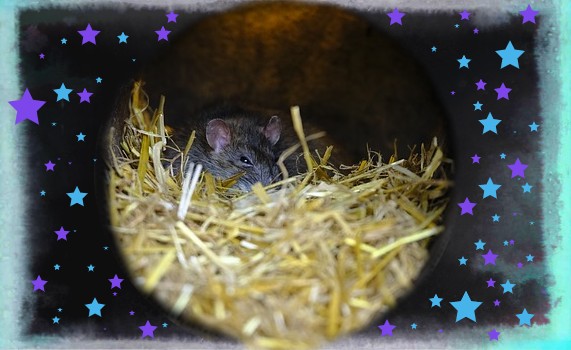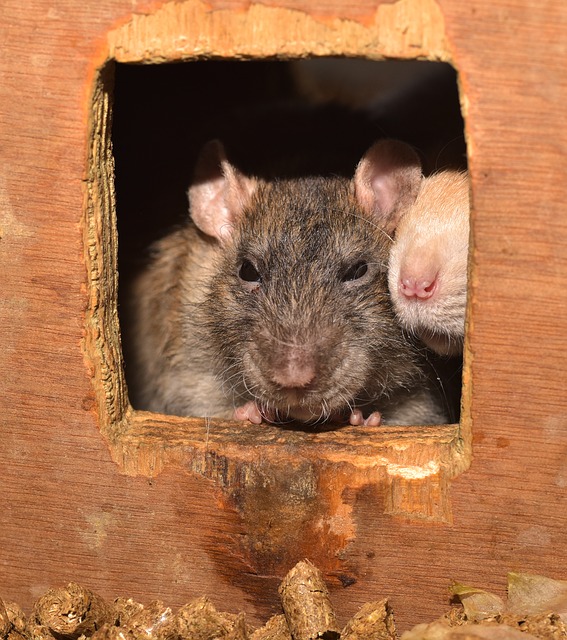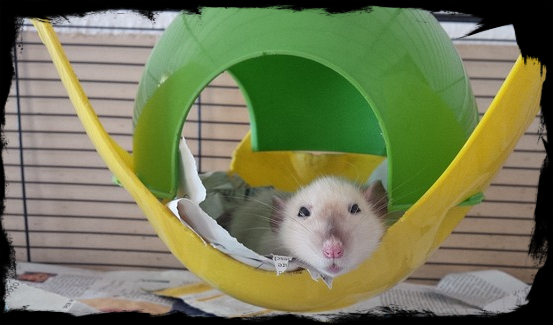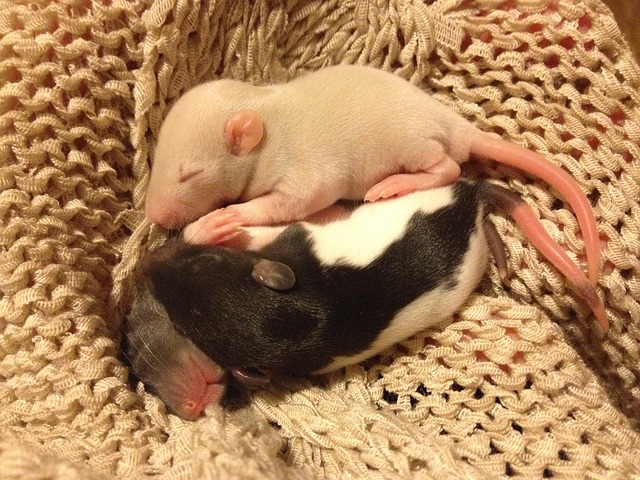Why Is My Rat Always Sleeping?

Every time you look over towards your rat’s cage, you see that he/she is sleeping… again. You can’t help but to wonder why your new pet always seems to be sleeping, much like your typical cat.

Is it normal for a rat to sleep all of the time? Wondering when you should worry? Well, that’s what we’re here for…
What’s Normal and What’s Not: Rat Sleeping Patterns
If you notice that your rat is sleeping all of the time, you might be seeing normal behavior. While humans typically stay up all day long while sleeping for a long stretch at night, most pets do not do this. Instead, pets tend to nap frequently; your dog or your cat likely has you familiar with those sleeping habits. Rats are no different; they have their own habits, too!
Rats Sleep a Lot!
Rats sleep much more than we do, therefore, you will see them sleeping nearly as much as you would see a cat sleeping. You’ll also spot lots of nap time activities, such as nesting, bathing, or grooming one another in the bed or hammock.
You’ll commonly see them wake up, rearrange their beds, wash their faces and paws, then curl back up for nap #2. Since people tend to be awake during the day and asleep at night, we tend to catch the sleepier side of the pet rat.

Rats Are Nocturnal Animals
One of the biggest traits that people overlook is the nocturnal nature of pet rats.
Rats are not up during the day; this is not how they live in the natural world. Instead, they are programmed to explore during the night hours, scavenging for food and safe burrows or nests while other animals are sleeping.
Since they are nocturnal, they are naturally sleepier and more quiet during daylight hours. If your rat is not displaying other concerning behaviors, I wouldn’t worry too much about his or her well being.

Checklist: Concerning Behaviors or Symptoms to Watch For
If you’re concerned that there truly is something wrong with your rat and his or her sleeping habits, watch out for some warning signs that a rat may not be okay:
- The rat is not leaving the bed to eat or drink
- The rat seems like he or she isn’t able to walk or crawl
- The rat seems wobbly or off balance (like he/she is drunk)
- The rat is lethargic and weak
- The rat is losing weight
- Sudden behavioral changes, including severe fatigue, loss of interest in playing and treats, or even aggression.
- Signs of pain, including hiding, cowering, defensive stances, whining, or whimpering.
Age Is a Major Factor
As a rat ages, he or she is going to have less energy for playing, much like people do as they age. If your rat is approaching the 16 to 18 month mark, his or her energy is likely fading. As youngsters, they’re quick to rouse from a nap for some rough housing; this isn’t so as they get older. On the flip side, the babies under 12 weeks of age will sleep far more, too.

The older a rat gets, the more coaxing you’ll have to do to pull them out of a slumber. Unless you’ve just gotten home, entered the room, or offered treats, that is.
Otherwise, the rat will become increasingly likely to just look at you and fall back to sleep. We all get tired, and our elderly rats simply need more time to recover from the night’s activities.